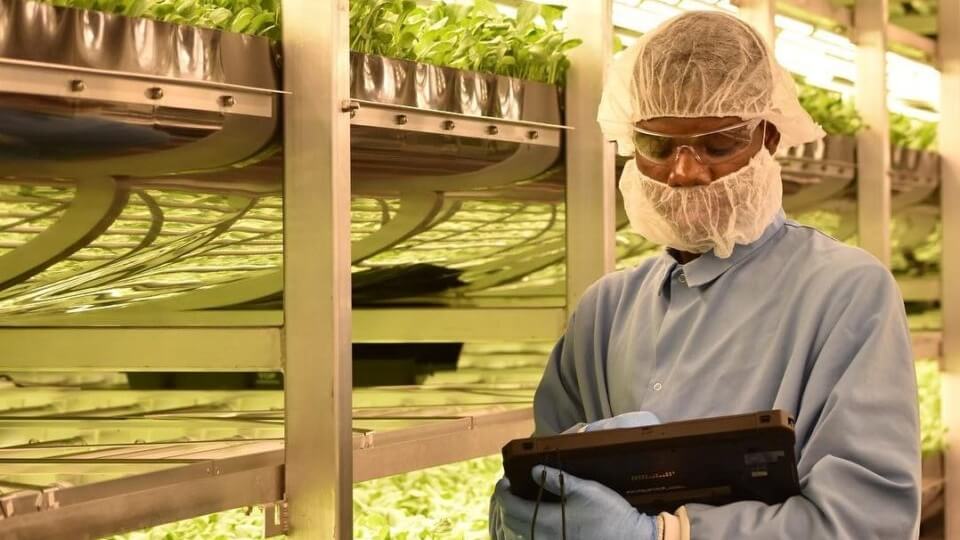Due to a lack of arable land, high temperatures, and increasing water scarcity, the government of Abu Dhabi—the capital and second-most populous city in the United Arab Emirates (UAE)—is investing $100 million in indoor farming.
The Abu Dhabi Investment Office is backing four agtech companies.
Vertical farming startup Madar Farms will construct a tomato farm. New Jersey-based company Aerofarms will build an R&D center. Florida’s Responsive Drip Irrigation (RDI) is developing a new irrigation system for growing plants in sandy soil. Abu Dhabi-based startup RNZ is creating more potent fertilizers, reducing the need for resources in farming.
The investment is part of a larger $272 million program supporting the development of agtech projects, such as indoor farming. The government believes that vertical farming will help the UAE—which imports 80 percent of its food—become more self-sufficient.

The Future of Farming?
“Agtech will be part of the solution to how we can better utilize water, how we can be more efficient, and how we can drive yield in farms,” Tariq Bin Hendi, the director-general of the Abu Dhabi Investment Office, told Fast Company. “We’re embracing technology because we know it’s the future.”
Abdulaziz Al Mulla, CEO of Madar Farms, explained that traditional farming “draws far too much on our precious water reserves. At the rate we’re going, we might run out of water within the next 50 years.”
A team of more than 60 scientists will study plant science at Aerofarms’ RDI center. According to CEO David Rosenberg, the company will work to develop plants with better yield, flavor, and nutrition.
“We want to grow more plants, know how to grow better, know how to grow with lower capital cost and operating costs,” said Rosenberg “That all stems from an ability to understand plants.”
Hydroponic farms use significantly less land and water than traditional farming techniques. Madar Farms’ system can recycle up to 95 percent of the water it uses. Growing Underground—a company growing greens in an old World War II bunker beneath London—uses 75 percent less water than traditional farming.
Elsewhere in the UAE, Crop One is building a 130,000 square foot facility in Dubai. It will use 320 gallons of water and 100 square feet of land in its hydroponic farm to grow the same amount of leafy greens that 827,640 square feet of land and 250,000 gallons of water would produce on a traditional farm.


